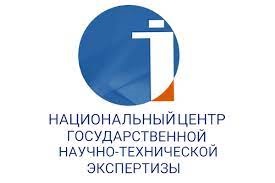LINGUOECONOMICS AND REPRESENTATION OF TRANSFORMATION OF ECONOMIC CONSCIOUSNESS
Abstract
Language is the main tool that constitutes human capital, as language can influence the economic, social development of the individual as well as influencing economic decisions. The economic relationship between languages in the economy is holistic as the national language of a country with a developed economy gains status and expands, followed by positive changes in the economy. Research into this phenomenon has, in turn, contributed to the emergence of a new branch of science called linguoeconomics.
The purpose of the paper is to show the transformation of contemporary Kazakh national economic consciousness in comparison to the periods before and after independence. As well as to provide an insight into the concept of economic discourse. In the study economic discourse was considered as a type of institutional discourse, first of all, the concept of "economic discourse" was defined, and the main differences and characteristic features of economic discourse from other types of institutional discourse were identified.
The importance of economic consciousness nowadays, its linguistic study actualizes the paper, because economic consciousness, like any other type of consciousness, its transformation, and improvement is carried out only in connection with language. The expression of consciousness is systematically represented in language, these representations are universal, especially because changes in the lexical layer occur faster than in the other layer. Therefore, lexical units have been taken to the subject of the research discussed in the paper.
About the Authors
A. BaimyrzaKazakhstan
Almaty
C. Beletsky
Russian Federation
Moscow
K. Duysen
Kazakhstan
Almaty
A. Piyazbayev
Kazakhstan
Almaty
A. Fazylzhanova
Kazakhstan
Almaty
References
1. Grin F. (2016) Challenges of Minority Languages. In: Ginsburgh, V., Weber, S. (Eds.). The Palgrave Handbook of Economics and Language. London: Palgrave Macmillan, 616-658 рр. (in English)
2. Marschak, J. (1965) The Economics of Language // Behavioral Science, 10, 135-140. (in English)
3. Belecskij S.B. (2019) Jazykovaja politika po raschetu // Nacional'nyj issledovatel'skij universitet «Vysshaja shkola jekonomiki». Nauchno-obrazovatel'nyj portal IQ. HSE. [Jelektronnyj resurs]. https://iq.hse.ru/news/315210835.html (in Russian)
4. Victor A. Ginsburgh, Juan Prieto-Rodriguez. (2011) Returns to Foreign Languages of Native Workers in the European Union // ILR Review. — T. 64, vyp. 3. — S. 599-618. (in English)
5. M. Keith Chen (2013). The Effect of Language on Economic Behavior: Evidence from Savings Rates, Health Behaviors, and Retirement Assets // American Economic Review. — Т. 103. (in English)
6. Fazylzhanova A.M. (2020) Bіz ulttyk tіlіmіzdі barynsha korgap kalu kezenіnde turmyz [We are in a period of maximum threat to our national language] // Qazlatyn aқparattyқ agenttіgі [Jelektrondy resurs] https://www.qazlatyn.kz/article?id=183 (in Kazakh)
7. Omar A. (2001) Words of the World. The Global Language System Abram de Swaan, Polity Press, Cambridge. – 253 pp. (in English)
8. Barry R. Chiswick, Paul W. Miller (2014) The Economics of Language: International Analyses Routledge Studies in the Modern World Economy (Tom 65), 624 pp. (in English)
9. Karasik V.I. (2000) O tipah diskursa [About the types of discourse]// Jazykovaja lichnost': institucional'nyj i personal'nyj diskurs: sb. nauch. tr. – Volgograd. – S. 5-20 (in Russian)
10. Sheremet'eva A.A. (2011) Osnovnye harakteristiki jekonomicheskogo diskursa (na materiale nemeckogo jazyka) [The main characteristics of economic discourse (based on the material of the German language)] [Jelektronnyj resurs] / A. A. Sheremet'eva // Vestnik Kuzbasskoj gosudarstvennoj pedagogicheskoj akademii. – No 7 (13) // Rezhim dostupa: http://vestnik.kuzspa.ru/articles/61/. 2013, svobodnyj (in Russian)
11. Lіkun' M. (2008) Rosіjs'kij ekonomіchnij tekst u funkcіonal'no-stilіstichnomu ta socіolіngvіstichnomu aspektah: Avtoref. dis. ... kand. fіlol. nauk: [Russian economic text in functional, stylistic and sociolinguistic aspects]/ Tavrіjs'kij nac. unt іm. V. І. Vernads'kogo. – Sіmferopol', – S. 9. (in Russian)
12. Uali N., Fazylzhanova A. (2009) Kogamdyk sananyn turlerі zhane tіl bіregejlіgі [Types of public consciousness and language uniqueness]// UGA Habarlary. – № 4 – 10-15 bb. (in Kazakh)
13. Zhalpy bіlіm berudegі qazaq tіlіnіn zhiіlіk sozdіgі. [Frequency Dictionary of the Kazakh language in general education] (2016) Zhalpy redak. baskargandar: Kazhybek E.Z., Fazylzhanova A.M. – Almaty: Dauіr. – 1472 b. (in Kazakh)
14. Pijazbaeva A. (2023) Tauelsіzdіk – ulttyk jekonomikalyk sananyn tіregі [Independence is a pillar of National Economic consciousness]https://www.facebook.com/story.php?story_fbid=pfbid02mWHTQAiMc7JFgoawGUZaSjbHPJHJQLY1GgUnmP9FcohxWVByGpL7HtjpodwYddFJl&id=100040334509403&mibextid=Nif5oz&_rdr [Jelektrondy resurs] (in Kazakh)
15. «Qazaq tіlіnіn tusіndіrme sozdіgі» (1974) [Explanatory Dictionary of the Kazakh language] On tomdyk. – Almaty: Qazaq SSR-nіn «Ғylym baspasy» (in Kazakh)
16. «Qazaq adіbi tіlіnіn sozdіgі» (2011) [Dictionary of the Kazakh language] On bes tomdyk. / Kurast. T. Zhaguzak, S. Omarbekov, A. Zhunіsbek zhane t.b. Almaty, Tіl bіlіmі instituty. (in Kazakh)
Review
For citations:
Baimyrza A., Beletsky C., Duysen K., Piyazbayev A., Fazylzhanova A. LINGUOECONOMICS AND REPRESENTATION OF TRANSFORMATION OF ECONOMIC CONSCIOUSNESS. Tiltanym. 2023;(2):82-89. (In Kazakh)
JATS XML

















